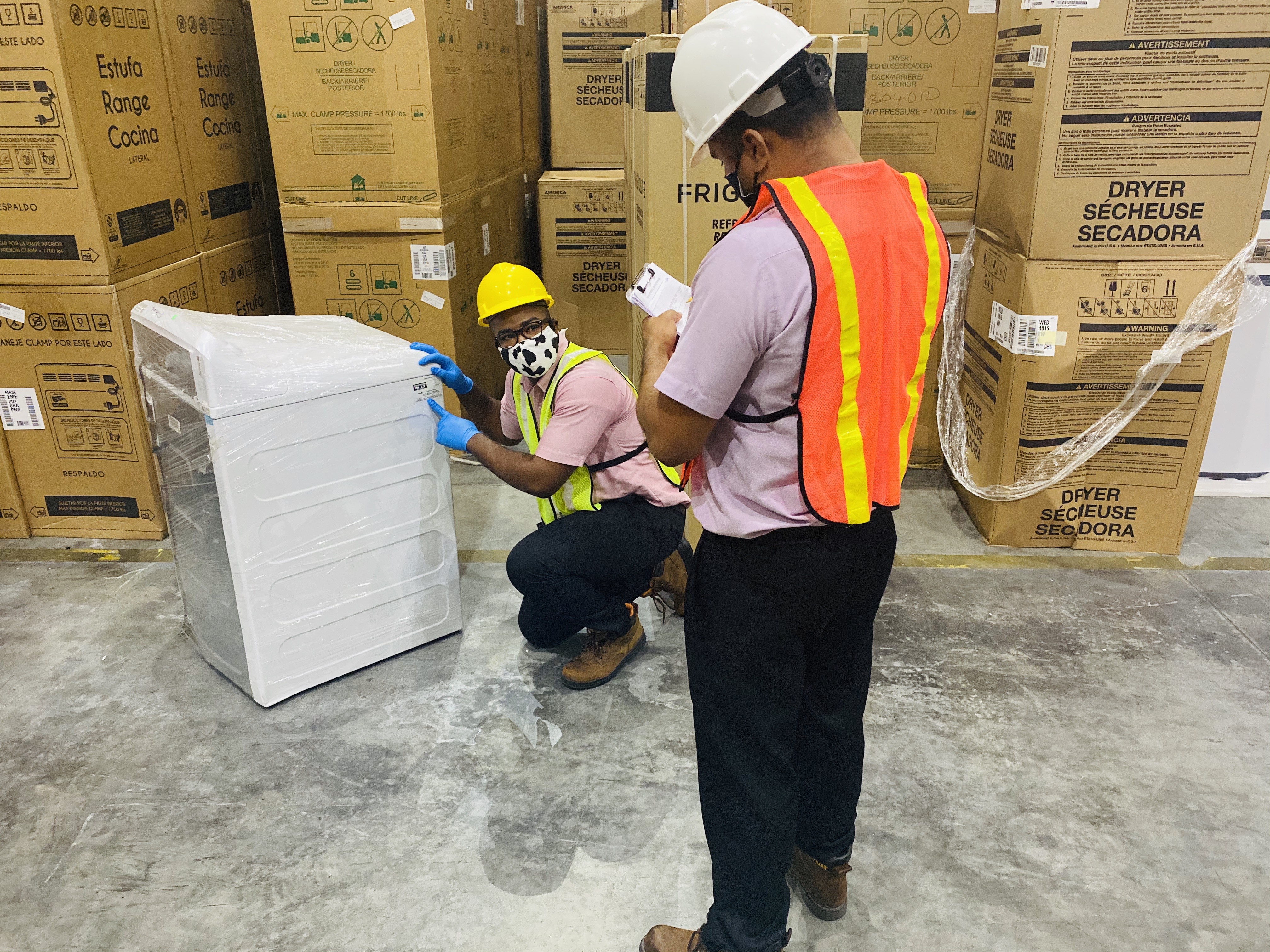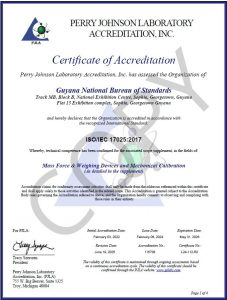For some households, Christmas in Guyana is a time to replace worn furniture and those partially defective or defective electrical appliances with new updated ones. These items are generally expensive, and to ensure consumers receive value for money, it is important for them to purchase quality products that meet their needs.
The Guyana National Bureau of Standards (GNBS) monitors the quality of household electrical appliances and furniture imported and manufactured locally, to ensure that they comply with labelling and quality requirements. Monitoring is done based on the Guyana Standard Specification for Labelling of Commodities – Part 7: Labelling of Electrical Equipment, Fitting and Household Electrical Appliances, the “Code of Practice for the manufacture of furniture” and the “Specification for the labelling of commodities – Part 5: labelling of furniture”.
There are two hundred and eighty-three (283) businesspersons registered with the GNBS to import electrical appliances for sale on the local market while one hundred and thirty-nine (139) importers are registered to import furniture. In addition, one hundred and six (106) furniture dealers are in possession of permits to sell those items. Year-round, Inspectors of the Bureau have been examining these household products prior to sale.
As it relates to electrical appliances monitored by the GNBS, these include refrigerators, electric stoves and cookers, televisions, mini music systems, blenders and food processors, toasters, microwaves and fans among others. Appliances conforming to the National Standard carry labels with information on the rated power/current, the country of origin, manufacturer’s name, trademark, or identification number, model number, and serial number or type. This information is crucial to guide the use and identification of these electrical items.
Additionally, appliances should carry a Certification Mark such as UL, CE, CSA, and NOM which indicates that they were tested and are of acceptable quality. However, in the absence of a certification mark, the GNBS requests that importers and dealers provide a test certificate showing the results of the quality tests carried out on products by an Independent Third-Party Testing laboratory.
Regarding furniture, the Code of Practice specifies the requirements for the materials, construction, workmanship and finish employed in the manufacture of furniture such as upholstered furniture, built-in furniture, craft furniture and inclusive of other common types and styles of furniture. This is important to ensure the manufacture of durable furniture for consumers looking to make that upgrade for the holidays or the new year.
Meanwhile, the labelling standard for furniture offers guidance to manufacturers who are desirous of producing quality pieces and looking to affix the requisite information to products to adequately guide shoppers. The standard states that furniture should be labelled with a common name or type of item; mark/code to distinguish the manufacturer and the country of origin (for imported furniture). Labelling must also include information on the predominant material from which the item is made (wood, metal or plastic), the type of finish (lacquer, varnish, paint) and precautionary notes for care to ensure that the items last longer.
It is imperative that we all begin to recognise the relevance of standards in ensuring that consumers get product information and the quality they deserve, as shopping grows during the remainder of the year.
Finally, the following are some useful tips to ensure consumers shop for the best products during this festive season:
Analyze your needs – Who will be using the appliance or furniture? How often it will be used? What exactly will it be used for etc. and choose accordingly.
Size of the item- Consider the size of the item and its capacity. Make sure the item can fit into the space available in your home.
Price – Expect to pay more for the more popular brands, added features and performance, and possible workmanship if not adequately covered by a warranty.
Warranty- Buy from stores that offer warranties, good pre-purchasing advice and adequate after-sale services. Make sure you know who is responsible for servicing and repairs whether it’s the dealer or manufacturer.
Electrical requirements – Ensure that the appliance has the correct voltage (110 or 220 volts) and the right cycle (50 Hz, 60 Hz or 50/60 HZ) which may vary depending on the area you live).
Test appliances – Ensure that the appliance purchased is working at the store before taking it home.
Conduct a detailed check of the furniture: When buying wooden furniture, consumers should take a closer look to ensure that the lumber and other materials used in manufacturing are free from common defects.
Certification Mark: Look for the certification mark on the back of the appliances. Some certification marks include UL, CE, CSA, NOM, and CCC.
For further information on this subject, please contact the GNBS on Telephone Numbers: 219-0064- 66, WhatsApp 692-GNBS (4627) or follow us on Facebook #GNBSGY






